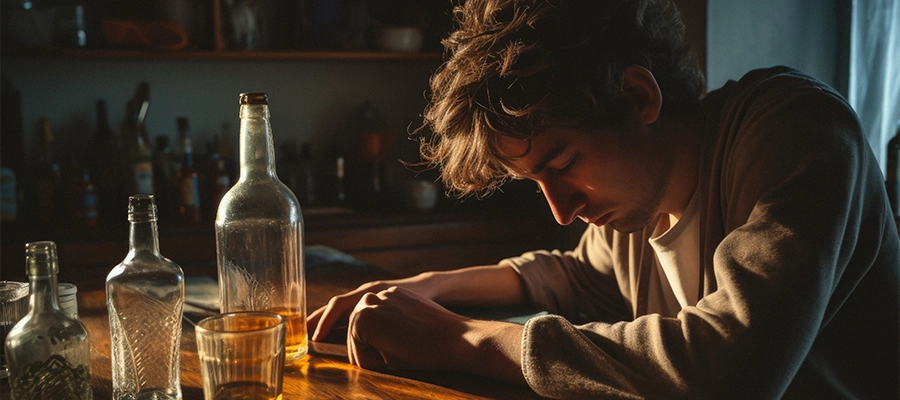What are alcohol triggers?
Alcohol triggers are particular situations, emotions, or experiences that heighten the urge to drink. They may include emotional states, environmental cues, social interactions, or even certain times of day that increase the occurrence of cravings or increase the risk of alcohol use.
Recognising Your Triggers
Understanding your personal triggers is an essential part of achieving and maintaining sobriety. It means becoming aware of the situations, emotions, or people that may put you at greater risk of relapse.
Here are some strategies, often used in specialist addiction therapy, that can help you identify your triggers:
- Keep a trigger diary: Record moments when you feel the urge to drink—note the time, place, people around you, and what was happening. Over time, patterns will emerge that highlight your triggers.
- Reflect on past relapses: Reviewing times when you returned to drinking can reveal common themes, such as emotions, events, or environments that influenced your decision.
- Listen to your body: Stress, anxiety, or sadness often show up physically—like a racing heart, sweating, or muscle tension. Tuning into these signals can help you spot triggers early.
- Check in with your emotions: Feelings such as loneliness, sadness, or anger can heighten cravings. Regularly assessing your emotional state makes it easier to recognize when you may be vulnerable.
- Review your social interactions: Certain people or situations may increase your desire to drink. Identifying these patterns can help you prepare or set boundaries.
- Notice environmental cues: Specific locations, routines, or even times of day may act as triggers. Being mindful of these associations can help you manage them more effectively.
Internal Alcohol Triggers
Internal triggers often arise from our emotional and psychological states. They’re not always negative—while difficult emotions can drive the urge to drink, even positive moods may lead someone to reach for alcohol as part of celebrating.
Common internal triggers include:
- Stress and anxiety: Work pressure, financial concerns, or family conflict can create overwhelming stress and anxiety, leading to alcohol use as a way to cope or escape. euphoria, heightened sensation, or a state of intoxication.
- Sadness or depression:In times of low mood, alcohol may seem like a way to lift spirits or numb painful emotions. However, since alcohol is a depressant, it can worsen feelings of sadness over time and reinforce a harmful cycle.
- Loneliness or boredom: Isolation, lack of social contact, or boredom can push people toward drinking for temporary comfort. This, however, can get in the way of building healthier connections or finding meaningful activities.
- Celebration and joy: Positive emotions, milestones, and festivities are often linked with alcohol. While it may feel natural to drink when celebrating, finding alternative ways to enjoy and mark special moments can break this association.
- Confidence and self-esteem: Some people drink to feel more outgoing or self-assured. Although alcohol may temporarily lower inhibitions, it doesn’t build genuine confidence and can undermine long-term self-esteem.
External Alcohol Triggers
External triggers come from the world around us—our surroundings, routines, and situations that may spark the urge to drink. While they’re often easier to recognize than internal triggers, they still require planning and strategies to manage effectively.
Some common external triggers include:
- Social events and celebrations: Weddings, birthdays, work gatherings, or holidays where alcohol is present can be challenging. The sight, smell, and social expectation to drink often make these events high-risk situations. Certain festive seasons, such as Christmas or New Year, can be especially triggering.
- Places linked to drinking: Bars, clubs, or even specific restaurants may remind you of past drinking habits. These settings aren’t just places where alcohol is available—they can also carry strong associations with your previous routines.
- Visual cues: Advertisements, movies, or simply spotting alcohol in a shop can trigger cravings. Because alcohol is so present in media and public spaces, these triggers can appear unexpectedly.
- End-of-day routines: Many people develop the habit of “winding down” with a drink after work or at the end of the week. This routine can become a strong trigger, particularly if alcohol was used as a way to relax.
- Stressful life events: Difficult experiences such as financial problems, relationship breakdowns, job loss, or bereavement may increase the temptation to drink as a form of escape.
Managing these triggers alone can be daunting. However, beingaware of them is crucial for recovery.

